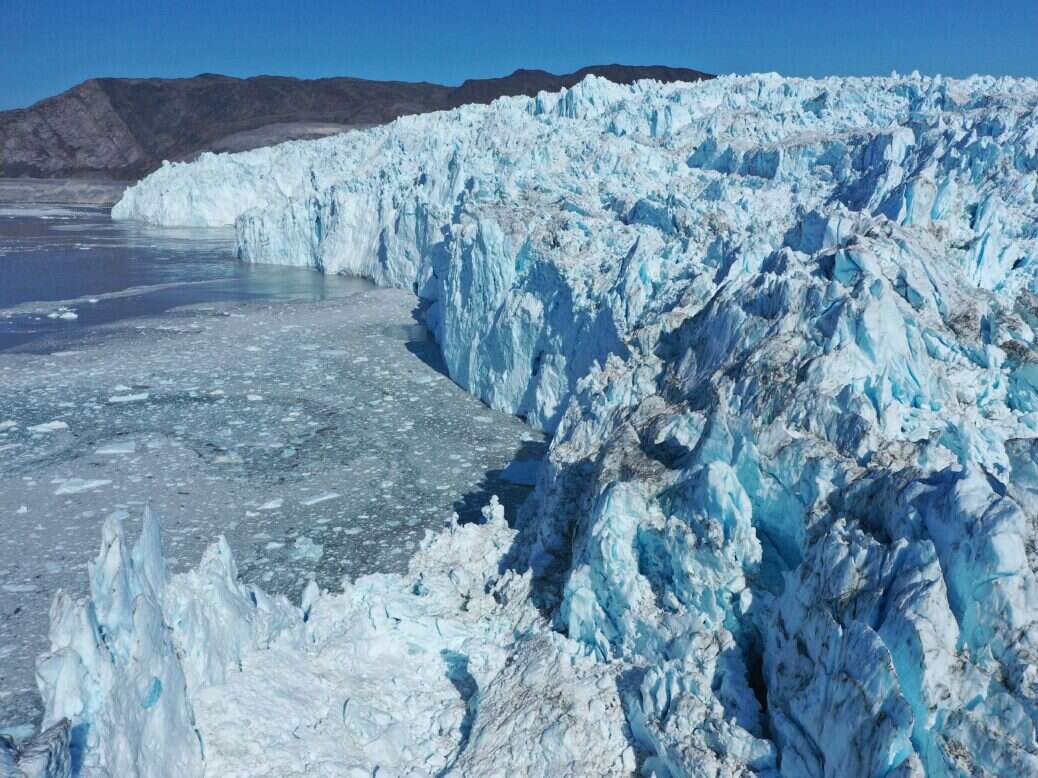
The publication of today’s landmark UN climate change assessment warns that the world will likely reach a dangerous 1.5°C of warming by the year 2040, even in a best-case scenario of emissions cuts. The findings also lay bare the human causes behind global warming and should serve as a spur to governments ahead of November’s COP26 climate summit in Glasgow.
The Intergovernmental Panel on Climate Change (IPCC) launched its new review of the science, “AR6 Climate Change 2021: The Physical Science Basis,” on 9 August. Two further reports, focusing respectively on impacts and mitigation, will be released across 2021 and 2022, as part of the IPCC’s sixth major climate assessment since 1990.
“[Scientists have] been telling us for over three decades of the dangers of allowing the planet to warm,” Inger Andersen, the executive director of the United Nations Environment Programme (Unep) said at the IPCC press conference. “The world listened, but didn’t hear.
“As a result, climate change is a problem that is here, now. Nobody’s safe, and it’s getting worse faster. We must treat climate change as an immediate threat.”
The current pace of global warming is unprecedented
Change in global surface temperature (decadal average) as reconstructed (1-1850) and observed (1850-2020)
The IPCC working group’s research reconstructs global surface temperature going back 2,000 years, using paleoclimate archives alongside temperature recordings observed since the mid-19th century. The findings reveal a drastic soar of over 1°C above pre-industrial levels within the past century.
Human influence on global warming is undeniable
Climate model simulations of the change in global surface temperature in response to both human and natural drivers, and to only natural drivers (solar and volcanic activity)
The report also turns its attention forward, finding that the 1.5°C limit of relatively “safe” temperature rise could well be reached by the 2030s, a decade earlier than was predicted just a few years ago.
The world is set to surpass the 1.5°C “safe” temperature limit within the next 20 years
Observed global surface temperature change relative to 1850-1900, upper and lower predicted temperature change until 2100
But the IPCC insists that hope should not be lost and that action taken by policy makers can still make a huge difference.
The report documents five possible future emissions pathways: high or very high greenhouse gas (GHG) and CO2 emission levels; intermediate, which would see emissions remain around their current level; and low or very low emissions, which would require the world to reach net zero within the next 30 years, and then continue with net negative emissions.
Immediate intervention on emissions could drastically limit future warming
Observed global surface temperature change relative to 1850-1900, and potential future warming depending on emissions level scenarios
If global nations pursue the “very low emissions” scenario, it could yet be possible to reach the century’s end without breaching a 1.5°C temperature rise. But continuing at current levels would see global surface temperature increase to almost 3°C.
What does this mean in practice? Modelling predicts that the kind of extreme weather events witnessed this summer, from flooding to heatwaves, will only become more common. Under a 2°C warming scenario, extreme heat could become twice as frequent – moving from 2.8 times a decade to 5.6.
Under 4°C global warming, extreme heat and rainfall could triple from current levels
Frequency of extreme weather events per decade, predicted under potential global warming
Under a potential scenario of 4°C of warming, the IPCC predicts that extremely heavy precipitation, which used to only happen once every 10 years, would occur almost three times every decade, and would be 30 per cent more intense.
What is clear, according to Petteri Taalas, the secretary general of World Meteorological Organisation (WMO), speaking at the IPCC press conference, is that governments’ current mitigation targets aren’t urgent enough.
“Have we lost hope?” asked Taalas. “No and yes. According to this report, we still have a chance to stop the negative climate trend during the middle of this century, by limiting the use of fossil fuels and by stopping deforestation.”
Only around half of nations signed up to the Paris Agreement met a recent deadline for submitting new targets
Countries coloured by status of NDC update
When the governments agreed to prevent average global temperatures from rising above 1.5 degrees at the Paris Agreement in 2015, they also agreed to submit updated “nationally determined contribution” (NDC) targets for emissions reduction.
Climate Action Tracker monitors these pledges and, as of August 2021, found that only 108 countries (81 countries plus the EU 27) out of the nearly 200 that signed the Paris Accord have met the recent deadline for submitting new targets.
Of the countries Climate Action monitors, 43, including the 27 EU countries, UK and USA, have submitted stronger NDC targets. Eight countries, including Australia, New Zealand, Russia and Brazil, have failed to raise their ambition in their 2020 NDC submissions.
Current national commitments, says Taalas, put global warming on track to reach 2 to 3 degrees by the end of the century.
“This is not enough to avoid several harmful impacts, such as the loss of food production and capacity, water shortages, extreme heat, forest fires, continued sea level rise, potential of refugee crises and the negative impacts on world economy and biosphere.”
“The message of the IPCC report is crystal clear, we have to raise the ambition level of mitigation.”
[See also: IPCC climate report: the arrival of the natural disaster movie age?]





